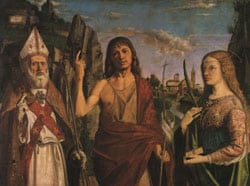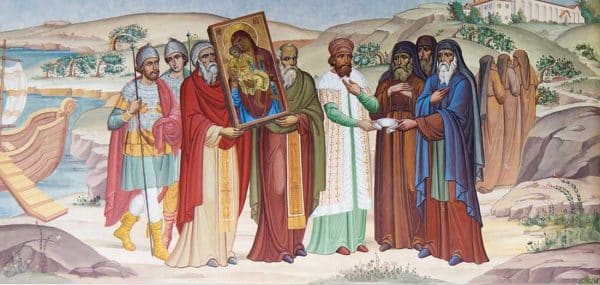
Saint Zeno of Verona’s life and work offer a fascinating glimpse into the early Christian Church and its development. His dedication to pastoral care, preaching, and community building highlights the central role of bishops in nurturing the faith and cohesion of the Christian community. Saint Zeno’s legacy, preserved in the traditions of the Church, the veneration of the faithful, and the Basilica that bears his name, continues to inspire and guide believers in their spiritual journey.
The early life of Saint Zeno is shrouded in mystery, with limited historical records available. What is known, however, suggests that he was of African origin, possibly born in Mauretania, a region in modern-day Algeria and Morocco. The exact dates of his birth and death are not precisely recorded, but he is believed to have served as the Bishop of Verona from around 362 AD until his death, which is traditionally dated to 380 AD.
Zeno’s tenure as Bishop of Verona was marked by significant religious and social upheavals. The early Christian Church was still consolidating its position within the Roman Empire, facing both external persecution and internal theological disputes. Saint Zeno is celebrated for his pastoral care, his efforts in evangelization, and his role in strengthening the Christian community in Verona and its surroundings.
One of the key aspects of Zeno’s ministry was his commitment to preaching and catechesis. He is known to have been an eloquent speaker and a prolific writer, although only a fraction of his writings has survived to the present day. His sermons and letters, characterized by their clarity, depth, and practical application, addressed various topics ranging from Christian doctrine and ethics to the challenges of living a faithful life in a complex world.
Legacy and Veneration
Saint Zeno’s legacy extends far beyond his lifetime, with his impact still felt in various ways. He is venerated as a saint in the Roman Catholic Church, the Eastern Orthodox Church, and the Anglican Communion, among others. His feast day is celebrated on April 12th, marking the day of his supposed entry into heaven.
The Basilica of San Zeno Maggiore in Verona is one of the most significant monuments to his legacy. This beautiful church, a masterpiece of Romanesque architecture, houses his relics and serves as a focal point for pilgrimage and veneration. The basilica’s artworks, including the famous bronze doors depicting scenes from the Bible and the life of Saint Zeno, are a testament to his enduring influence on Christian art and culture.
